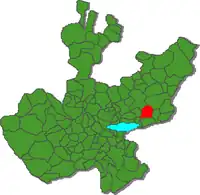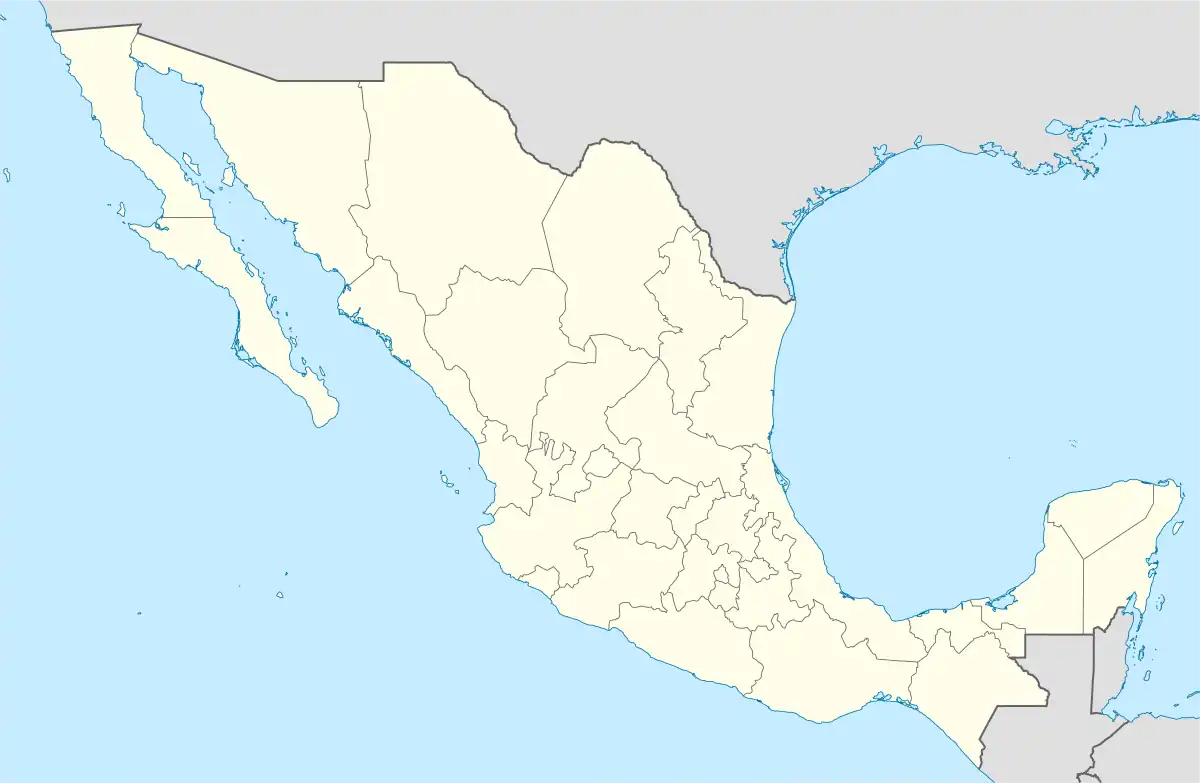San Francisco de Asís, Atotonilco El Alto
San Francisco de Asis is a town within the municipality of the Atotonilco El Alto located in the southeastern part of the state of Jalisco in Mexico. It is named after the Italian Saint Francis of Assisi. At the time of the census of 2005, the town had a population of 5,167 inhabitants. Its most distinctive features are the Fine Sanctuary of Our Lady of Los Altos and the fact that new tequila factories are located there. Its surrounding municipality of the same name had an area of 1,532.78 km² (591.81 sq mi) and a population in conjunction of Atotonilco el Alto of 126,625 in the 2005 census, but its territory has increased significantly since the beginning of 2005 with the creation of the new housing, churches, and schools.
San Francisco de Asis, Jalisco | |
|---|---|
Town | |
| Nickname: San Pancho | |
 Location of the municipality in Jalisco | |
 San Francisco de Asis, Jalisco Location in Mexico | |
| Coordinates: 20°32′N 102°30′W | |
| Country | |
| State | Jalisco |
| Elevation | 2,000 m (6,561 ft) |
| Population (2005) | |
| • Total | 5,167 |
Ancestry
Traditionally, the region of San Francisco de Asis is known for its inhabitants of French, German, Italian, Fenicia and Spanish ancestry strong family and Roman Catholic values. The families Hernandez, Flores, Angulo, Vasquez, and Avina are some of the original families that settled in the town, these families come from Spanish, Italian, Cuban, Aztec, and German backgrounds. Most young men leave town to work in the United States. Men arrive from out of state and abroad in hopes of finding a pretty girl with traditional family values.
Also worth noting is the growing number of distinguished expatriates who emigrated to the US. These now reside particularly in California, Nashville, Houston, South Dallas, and Chicago metropolitan areas.
San Francisco de Asis Plaza
Plaza provides outdoor entertainment, sitting areas, fountains, and sometimes kiosks. Many Youths and Elders walk around there every Sunday Afternoon. Plaza. There are many ice cream vendors surrounding the plaza, panderias, and local vendors to sell food on Sunday evenings.
A traditional Sunday night consists of many going to church and either going to visit nearby relatives or heading to eat with a group of friends or family.
